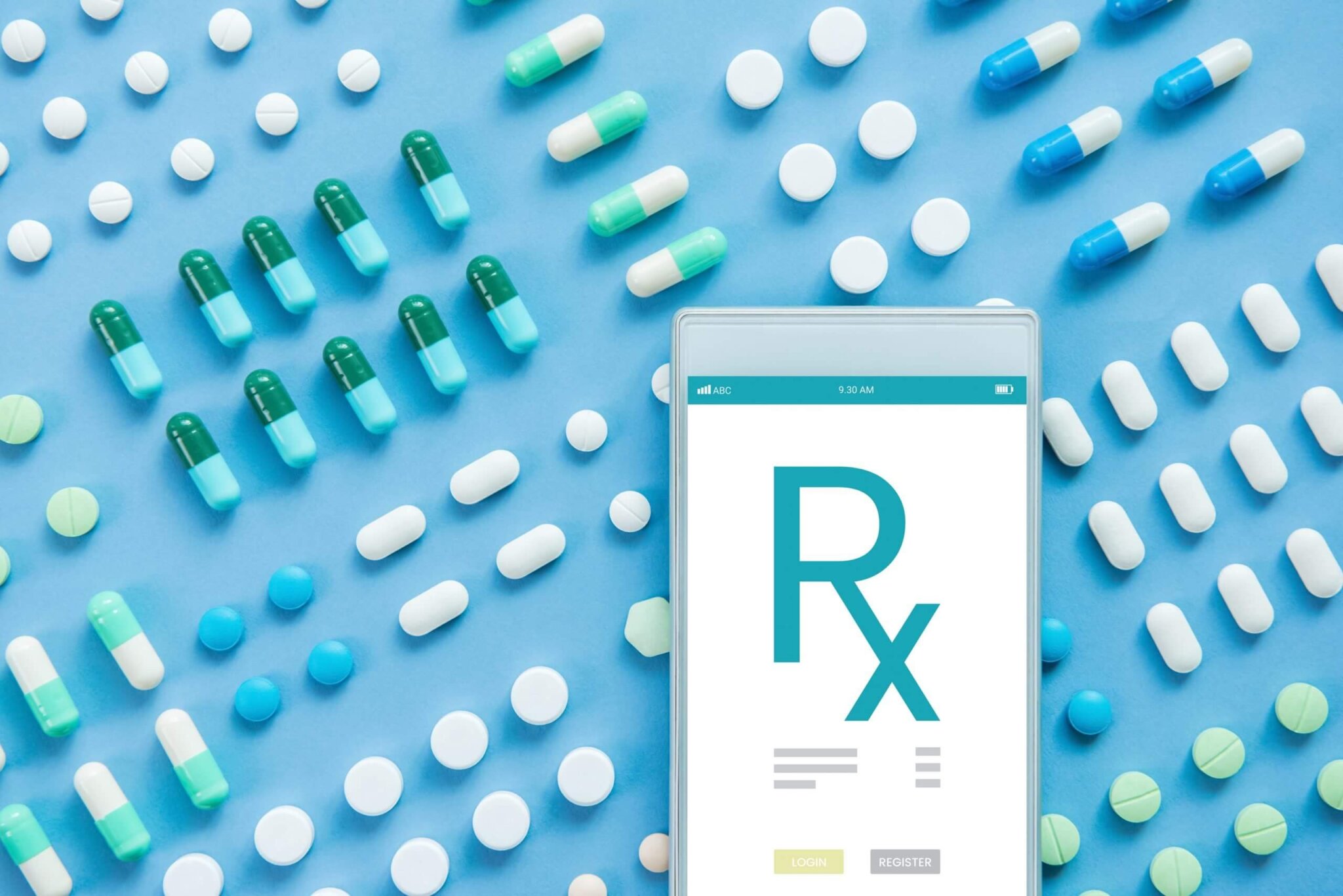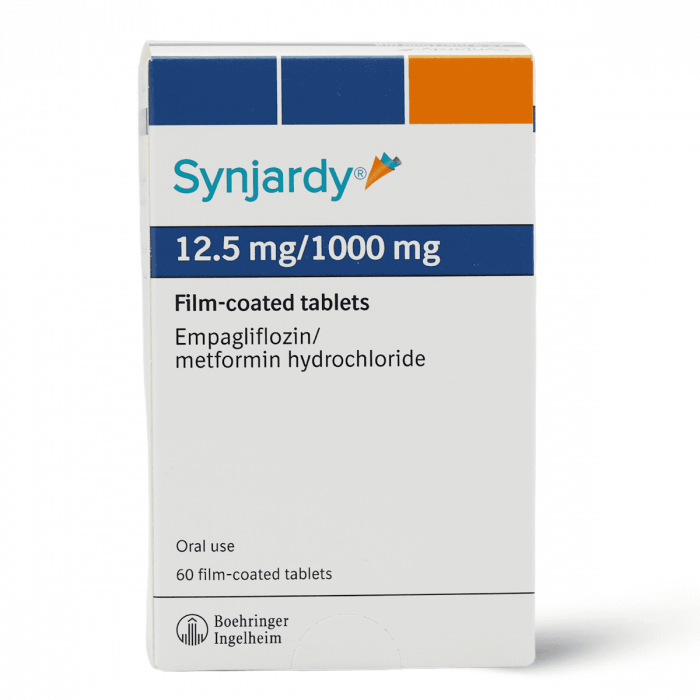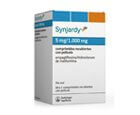Synjardy / Jardiance Duo (
generic name: empagliflozin and metformin) is a prescription medication that combines
empagliflozin, a sodium-glucose co-transporter 2 (
SGLT2) inhibitor, with
metformin, a biguanide anti-diabetic agent. It is formulated to improve glycemic control in adults with
type 2 diabetes whose blood glucose levels are inadequately managed through metformin alone or in combination with other glucose-lowering therapies. This dual-action medicine helps reduce blood sugar by enhancing urinary glucose excretion and decreasing glucose production in the liver.
Empagliflozin reduces renal glucose reabsorption, leading to increased glucose excretion in the urine, while metformin decreases glucose production in the liver and increases insulin sensitivity. Together, they target distinct but complementary mechanisms to lower blood glucose effectively.
Jardiance Duo is not suitable for the treatment of type 1 diabetes or diabetic ketoacidosis. The risk of serious side effects, including
lactic acidosis, necessitates close clinical monitoring. The combination offers convenience for patients transitioning from individual tablets to a fixed-dose formulation.
This medication is available in several fixed-dose strengths: 5 mg / 500 mg, 12.5 mg / 500 mg, 5 mg / 850 mg, 12.5 mg / 850 mg, 5 mg / 1000 mg, and 12.5 mg / 1000 mg of empagliflozin and metformin, respectively.
For further detailed medical guidance and updates, refer to
MedlinePlus.
Dosage
It is important to follow the dosage instructions printed on the label of the box. Check with a doctor or pharmacist if there are any doubts regarding the proper dosage and treatment regimen.
The recommended dosage of Synjardy / Jardiance Duo is one tablet taken twice daily, with meals, to minimize gastrointestinal side effects. Tablets should be swallowed whole and must not be crushed, split, or chewed. The prescribing physician will determine the appropriate tablet strength based on individual treatment goals and renal function.
In cases of missed doses, the missed tablet should be taken as soon as remembered. If the next dose is imminent, the missed dose should be skipped; double doses are not recommended. Dosage adjustments may be necessary during episodes of acute illness, surgery, or changes in kidney function. Ongoing assessment by a healthcare provider is essential to ensure therapeutic effectiveness and safety.
Storage
Jardiance Duo should be stored below 25°C (77°F) and kept in its original packaging to protect it from moisture. It should be kept out of reach of children and should not be used beyond the expiry date printed on the packaging. The medicine does not require refrigeration. Tablets should be stored in a dry environment and not exposed to excessive heat or humidity.
This text is for informational purposes only. Please consult a doctor or pharmacist before using any medication.
The information leaflet that comes with the medication includes full information about the possible side effects. Be sure to read and understand these, and if there are any questions, discuss these with a healthcare provider or pharmacist before starting treatment.
Caution
If a sudden allergic reaction (anaphylaxis) occurs shortly after taking Synjardy / Jardiance Duo, with symptoms like swelling of the face, tongue, or throat making it difficult to breathe or swallow, or there is wheezing, hives, rash, blistering, or peeling of the skin, call a doctor or 911 right away, or go to an emergency room immediately.
Pregnant women should not be using this product unless this has been discussed with a healthcare provider, as it might harm the unborn baby or pose a risk of miscarriage. For this reason, women planning to become pregnant should use appropriate birth control measures during the treatment and one month after taking the last dose.
Synjardy may pass into breast milk, and mothers should consult with a doctor if already feeding or planning to feed an infant.
Most people who use Synjardy do not experience any adverse side effects. Doctors prescribe this medication because they assess the benefits of such treatment outweigh any likely unwanted effects.
Some of the side effects that have been reported include:
- Very common: low blood sugar, urinary tract infections (especially in women)
- Common: increased urination, genital yeast infections, nausea, thirst, upper respiratory infections, joint pain, drop in vitamin B12, increased LDL cholesterol
- Uncommon: low blood pressure, dehydration, dizziness, frequent urination, night-time urination.
If these or other unlisted symptoms persist or worsen, consult a healthcare provider or pharmacist.
Synjardy / Jardiance Duo is approved for the treatment of adult type 2 diabetes, a metabolic disorder characterized by insulin resistance and relative insulin deficiency. Common symptoms of type 2 diabetes include:
- Frequent urination
- Excessive thirst
- Unexplained weight loss
- Fatigue
- Blurred vision.
In the long term, uncontrolled diabetes may lead to cardiovascular complications, kidney damage, neuropathy, and retinopathy.
This medication is not indicated for type 1 diabetes, a condition where the body does not produce insulin. Off-label uses are not common for this combination but may be explored in complex diabetic management under strict medical supervision. Inappropriate use can increase the risk of diabetic ketoacidosis, particularly in insulin-deficient states.











